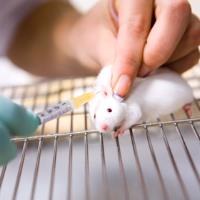(LUXEMBOURG) – EU law protects the EU market from cosmetic products containing ingredients which have been tested on animals, the EU’s top court ruled Wednesday, wherever the testing was conducted.
The case concerned three members of the European Federation for Cosmetic Ingredients (EFfCI) who conducted animal testing outside the EU in order to sell cosmetic products in China and Japan.
The action was brought before the British courts to establish whether the three companies concerned would incur criminal penalties if they were to place on the British market cosmetic products containing ingredients that have been tested on animals.
The EU’s Regulation on cosmetic products outlaws the marketing of products containing ingredients tested on animals in order to meet the requirements of that regulation. One of these is that the cosmetic product is safe for human health.
The EFfCI claims that the regulation is not infringed if the animal testing has been conducted in order to comply with the laws of third countries. Hearing that dispute, the High Court of Justice (England & Wales), Queen’s Bench Division (Administrative Court), UK, questioned the Court of Justice on that subject.
The EU Court considered that the objective of the regulation is to establish the conditions for access to the EU market for cosmetic products and to ensure a high level of protection of human health, whilst also ensuring the wellbeing of animals by prohibiting animal testing. Access to the EU market is conditional upon compliance with the prohibition of animal testing.
The Court considered it irrelevant that the animal testing was required in order to market the product in third countries. The point of the EU regulation is to promote the use of non-animal alternative methods to ensure the safety of cosmetic products. It said the attainment of this objective would be seriously compromised if the prohibitions laid down in EU law could be circumvented by carrying out the animal testing in third countries.
The conclusion of the Court is that the placing on the EU market of cosmetic products containing some ingredients that have been tested on animals outside the EU in order to market those products in third countries may be prohibited if the data resulting from that testing is used to prove the safety of the products concerned for the purposes of placing them on the EU market.



